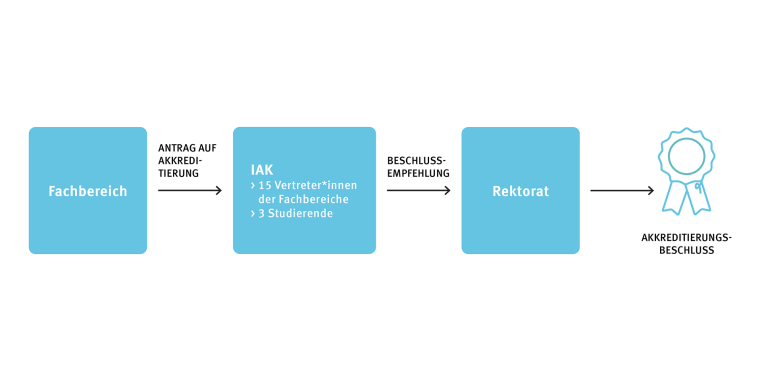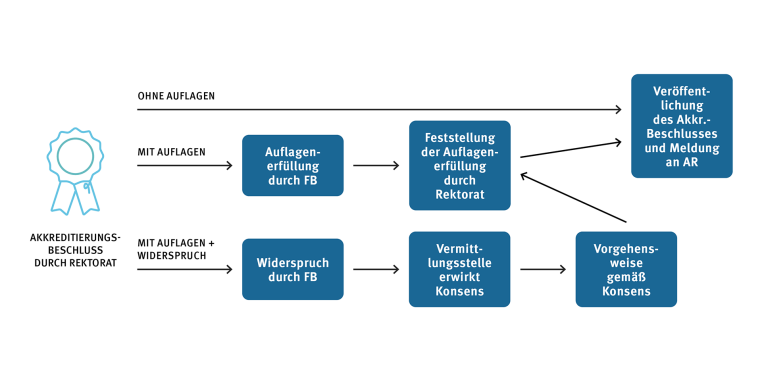Accreditation

All bachelor's and master's degree programs must be accredited due to legal requirements. The accreditation process ensures that a program meets the statutory criteria for designing study programs (in accordance with the Studienakkreditierungsverordnung StudakVO). A successful accreditation is documented by the award of the seal of the Accreditation Council. For this quality assurance procedure, there are generally two different possibilities: internal accreditation and external program accreditation.
At the University of Münster, internal accreditation has been conducted as a rule since the introduction of the Quality Management System (QMS). The basis for this is the prescribed processes of the QMS at the University of Münster. With the Rectorate's decision on accreditation, study programs receive the seal of the Accreditation Council as well as confirmation of compliance with the requirements of the Quality Management System (according to the QM Regulation).
For a few study programs, external program accreditation still needs to be carried out due to legal requirements (e.g., for the Catholic theological full-time program or some international cooperative study programs).


